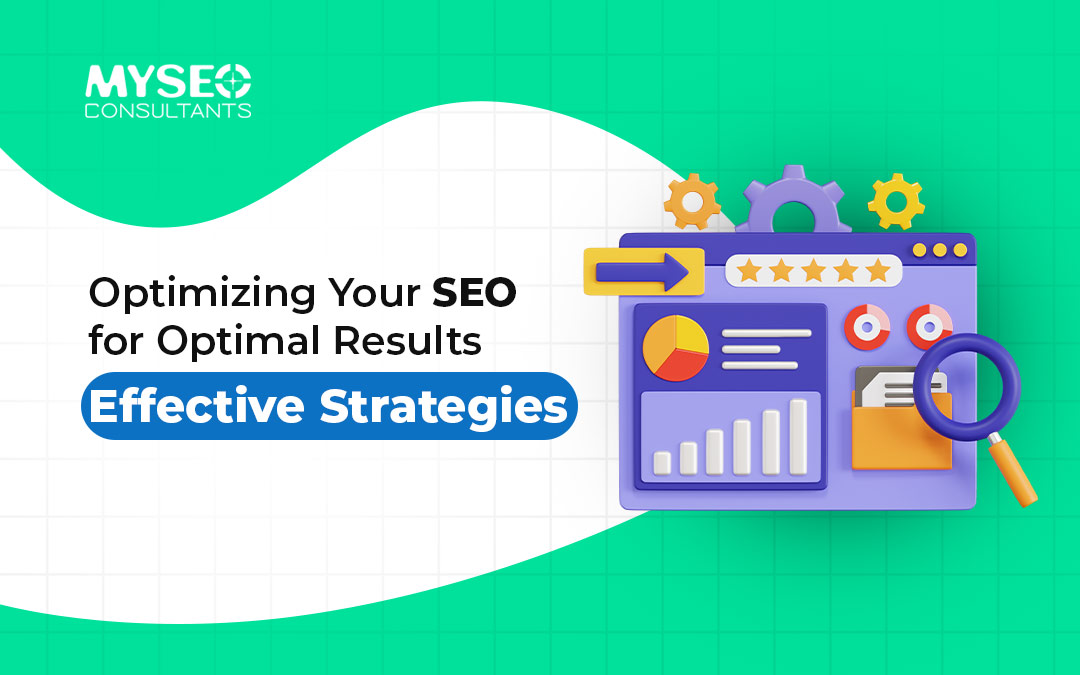Today, most of us start by searching search engines for whatever we need – be it a service, idea, solution, or plan. Every day, nearly $3.5 billion searches are made on Google alone. So, just like search engines have become an integral part of our lives, SEO optimization has also become essential for the SEO effective strategies of many businesses. As a matter of fact, 49% of marketers believe that organic search offers the best return on investment out of all the channels.
“Organic search” is just a fancy term for a regular, non-ad search engine result and the means by which marketers incorporate organic search as a marketing channel. So, how can you leverage the potential of search engines to grow your business?
In this blog, you will learn SEO best practices, enhance SEO performance, and learn actionable tips that you can implement in your business right away to boost your brand reputation.
7 Effective SEO Optimization Strategies to Improve Your Website Ranking
In today’s competitive digital landscape, SEO optimization has become necessary to rank higher on Search Engine Result Page (SERP). Being on the first pages of Google drives massive traffic towards any website, boosting its credibility.
Enhancing SEO performance requires consistent effort but pays off substantially once you acquire top spots on Google SERPs. That’s why you should follow these SEO optimization and digital marketing strategies to improve your website ranking.
1. Perform Keyword Research Accurately
Keyword research is a fundamental step in optimizing your website for SEO. And if you do not perform keyword research accurately then you may not get desired results. Identify relevant keywords and phrases that align with your business, products, and target audience.
Utilize keyword research tools like SEMrush, Ahrefs, or Google Keyword Planner to analyze search volumes, competition, and trends. Choose keywords that have a good search volume and low competition. Incorporate these keywords naturally throughout your website content.
2. Create High-Quality Content with those Keywords
Once you have your keywords, create high-quality content that provides value to your audience. Develop informative and engaging content that incorporates the identified keywords naturally. Strive to offer unique and valuable insights that distinguish your content from others in your industry. High-quality content attracts more visitors, keeps them engaged, and encourages them to share and link to your website.
3. Optimize On-Page Content Using Relevant Keywords
Optimize your website’s on-page content to improve search engine ranking. Create page titles, meta descriptions, and URLs that accurately reflect the content while incorporating targeted keywords. Use descriptive headings (H1, H2, etc.) to help search understand the structure and relevance of your content. Ensure the keywords appear in the titles and body text naturally.
4. Optimize Your Images for SEO
Images play a significant role in enhancing user experience on your website. However, they can also impact your SEO. Optimize your images using descriptive file names and alt tags with relevant keywords. Compress your images to reduce file sizes and ensure faster load times. Optimized images improve your website SEO and enhance user engagement and accessibility.
5. Build Internal and External Link Structure
Building a solid internal and external link structure is essential for maximizing SEO impact. Internally connect relevant pages within your website through hyperlinks. This helps search engines understand the hierarchy and relationship between your content. To get external links, aim to earn high-quality backlinks from reputable and relevant websites. These backlinks will serve as “votes” of confidence for your website, improving its authority and search engine visibility.
6. Ensure Fast Page Load Times
Page load speed is a crucial ranking factor for search engines. Slow-loading websites frustrate users and result in higher bounce rates. Optimize your website’s performance by compressing images, minimizing code, and leveraging cacheing techniques. You can also utilize content delivery networks (CDNs) to improve global load times. A fast-loading website improves SEO, enhances user experience, and improves conversion rates.
7. Promote Your Posts on Social Media
Social media platforms provide an excellent opportunity to promote your content and drive traffic to your website. Share your blog posts, articles, and other valuable content relevant to your target audience on social media channels. Encourage engagement, such as likes, shares, and comments, to increase visibility and reach. Social media signals can indirectly impact your SEO efforts by generating referral traffic and potential backlinks.
Continue to Learn SEO
SEO optimization is a vital component of any digital marketing strategy. With the above SEO tips and strategies, you can create an SEO-optimized website that drives more traffic and improves your SEO ranking on SERPs.
Always remember enhancing SEO performance and maximizing SEO impact takes time! But the efforts are worth it in the long run. If you’re looking for professional SEO services provider to optimize your site for SEO, you can contact our SEO Consultants. We will help you to embrace these strategies effectively to stay ahead in the ever-evolving SEO world.


